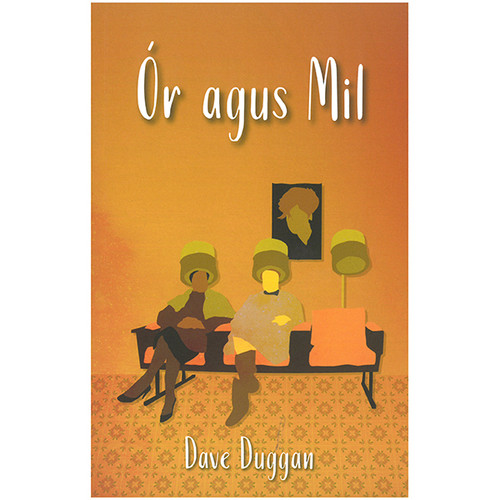Product Description
Lord George Hill (1801 -1879) bought up large areas of land in Gweedore in 1838 and started “modernising” the area. Some of these changes may look like encouraging developments to modern eyes. The first road into Gweedore was constructed in 1834 when the Board of Works constructed a road from Dunlewey to the Gweedore River and Lord George Hill further improved the roads on his estate, he built a Hotel for visitors to the area. Lord Hill also built the port of Bunbeg in the late 1830s to encourage fishing. He also built a grain store on the quay, opened a shop and a bakery and encouraged women to knit socks for sale. Lord Hill, however, made sure that no one else opened up in opposition to him. Margaret Sweeney was evicted for trying to set up a bakery without permission.
Lord Hill’s land reforms were certainly not welcomed by the people in Gweedore. Lord Hill outlawed the building of any further new houses, any subdivision of land, or the sale of land. He had the area surveyed during 1841-1843, and then began to allot new consolidated larger holdings to each tenant. Under these circumstances, providing land for sons was impossible and the only option for them was emigration.
There were partial crop failures in 1831, 1837, 1854 and 1856, and complete crop failure in the years of “the great famine” (1846-48). Surprisingly, there was not a great loss of population in the Gweedore area compared with other parts of Ireland. This was probably partially due to the efforts of the landlord, and also to the availability of edible seaweed. Lord George Hill tried to help his tenants; he wrote begging letters to the Society of Friends (the Quakers), the Irish Peasantry Improvement Society of London and the Baptist Society. He sold grain below cost and sooner than directed, contrary to government policy, although he was recompensed generously by the government for grinding Indian Corn.
Lord George Hill believed the famine was a judgment by God on the people for their morals and land practices... He said “The Irish people have profited much by the Famine, the lesson was severe; but so were they rooted in old prejudices and old ways, that no teacher could have induced them to make the changes which this Visitation of Divine Providence has brought about, both in their habits of life and in their mode of agriculture.” He saw the famine as justification for phase two of his reforms. Sheep.
The Scottish Blackface, like several other breeds of sheep, was brought to Ireland by Lord Hill (and other landlords) as a way to make up for lost revenue during the famine.
The farmers were deprived of their mountain grazing. If their animals wandered onto unfenced land (that had previously been common land) their animals were impounded and the farmers were saddled with massive fines of £2 or more. Things were so bad that John and Daniel Coll had had to apply for poor relief.
Not everyone took this lying down, of course. In December 1856, around forty Irish tenant farmers raided the house of a Scottish shepherd and ordered him to leave the country. More raids followed. Hundreds of sheep were killed (or went missing). Hundred were found dead on the land near Meenderrygamph. This was known as the Gweedore Sheep War.
AS GAEILGE SAN IOMLÁN - FOILSITHE AG Cló Iar Chonnacht, SAMHAIN 2023
 Euro
Euro
 British Pound
British Pound







